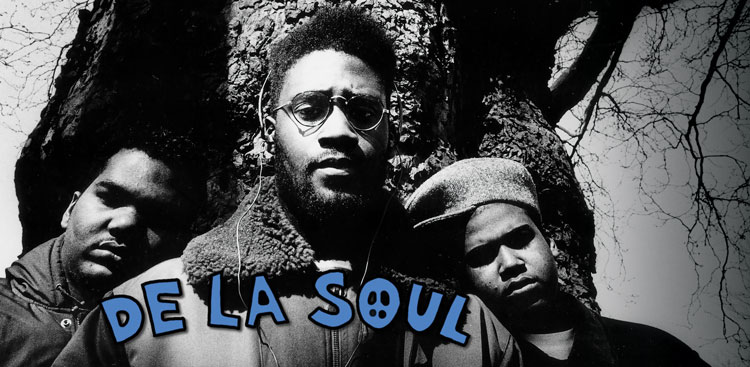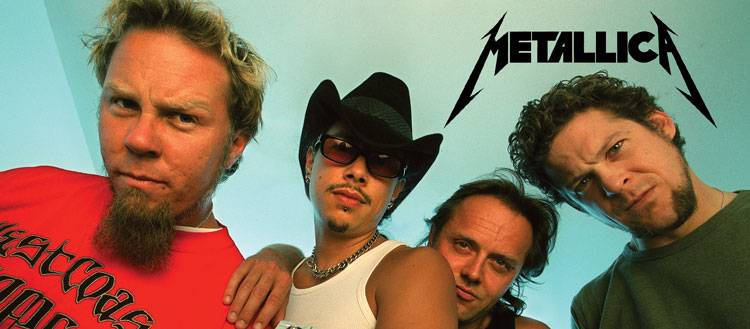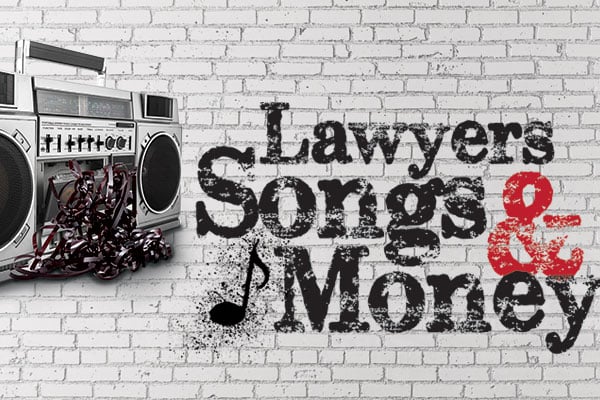Lawyers, songs and money: Music that changed the law

Photo by Brenan Sharp/Shutterstock
For lawyers, being mocked or even attacked in pop culture goes with the territory. Between William Shakespeare’s famous line about killing lawyers to the many, many movies and shows portraying lawyers as sleazy, unethical or downright evil, it seems as if lawyers rank somewhere between used-car salesmen and the devil on the scale of likability.
So it may be surprising to learn that, comparatively, there don’t seem to be nearly as many songs about hating lawyers. Perhaps it’s because behind every successful musician stands an army of top lawyers and law firms ready to spring into action. Whether it’s filing suit to get out of a bad record contract, defending against plagiarism accusations or even appearing at arraignments to argue for bail, musicians have long realized that they need to have their attorneys on speed dial. There’s little to be gained by alienating or attacking them in song.
Occasionally, a band or artist will be involved in a lawsuit so groundbreaking and important that it will set a precedent—either one that’s enshrined in the law that can be followed by everyone, or one that is less official but nevertheless binds future generations. Here are some of the songs or albums that helped move the law.
Copyright Law: Plagiarism
Always known as the “Quiet Beatle,” George Harrison tried to dispel that notion by releasing “All Things Must Pass,” a highly acclaimed and popular triple album, in 1970—the same year the Beatles officially broke up. “My Sweet Lord,” a light, breezy tune with an overt religious theme that was the biggest hit from the album, became the subject of intense litigation for more than 20 years that ended up establishing precedents in multiple areas of the law.
In 1971, Bright Tunes Music Corp., which held the copyright on the Chiffons’ 1963 hit “He’s So Fine,” sued Harrison’s publishing company, Harrisongs Music Ltd., for copyright infringement. Bright Tunes alleged that “My Sweet Lord” copied the melody and song structure of “He’s So Fine,” while Harrison claimed that the song had come to him organically.
During litigation, Harrison admitted he had known of the Chiffons’ song, but denied that it had influenced him. Harrison turned to his lawyer, famed music attorney David Braun of Hardee, Barovick, Konecky & Braun, for help. “He impressed me as a very down-to-earth guy,” says Joe Santora, head of litigation at Braun’s firm who ended up trying the case. “I found that amazing, considering his experience making all those millions of dollars and being chased by all those women. How can anyone keep a level head after that?”
Harrison testified on his own behalf and even brought his guitar to court to show how he had composed “My Sweet Lord.” Santora recalls the New York courtroom being packed to the rafters as if it were Yankee Stadium. “George’s testimony was perfect,” Santora says. “It saved him. It kept the judge from calling him guilty on intentional infringement.” Instead, Harrison was found liable for subconsciously infringing the Chiffons, which lowered his damages considerably.
The court awarded $1.6 million to Bright Tunes. However, before Harrison could pay, his former manager, Allen Klein, switched sides, bought the rights to “He’s So Fine” and continued the case against his former charge. “I pointed out that this could be the one time in history where the same person drew up the complaint and response in the same case,” Santora says. Citing his manager’s breach of fiduciary duty and conflict of interest, the court knocked damages down to $587,000. Further squabbling over this figure meant the case would not be resolved until 1998—three years before Harrison’s death.
By finding that Harrison committed subconscious plagiarism, the long-running case significantly expanded the scope of copyright infringement law. Harrison’s legal woes also established a precedent whereby anytime there’s a whiff of similarity, musicians and publishers will try and appease the copyright holders by giving them co-writing credit or a share of the royalties. It’s a phenomenon that could become even more widespread thanks to lawsuits involving Robin Thicke’s 2013 hit “Blurred Lines” and Led Zeppelin’s classic “Stairway to Heaven.”
In the former, a jury ruled in 2015 that Thicke and co-writer Pharrell Williams committed copyright infringement against Marvin Gaye’s “Got to Give It Up.” Thicke and Williams admitted to being influenced by Gaye’s vibe and style, but argued there were enough differences between the songs (they were in different keys, the chord progressions were different) so it wasn’t plagiarism but an homage. After losing before the San Francisco-based 9th U.S. Circuit Court of Appeals, the parties settled out of court. “There’s no guidance available,” says Howard King, partner at King, Holmes, Paterno & Soriano, who represented Williams and Thicke. “There’s no definitive way to determine whether or not a song will later be found to have copied another one.”
As for Zeppelin, a federal jury in 2016 cleared the band of infringing “Taurus,” a song by the 1960s band Spirit. However, a three-judge panel for the 9th Circuit reversed the verdict, finding that the trial judge should have advised the jury that, while individual chords, notes and scales cannot be copyrighted, a combination of them could qualify as original and deserving of protection under the law. In June, the 9th Circuit agreed to hear the case en banc.
Copyright Termination
Detailed figures are not available, but it’s a safe bet to assume that the Village People’s 1978 disco classic “Y.M.C.A.” brings in tons of royalty revenue every year. In fact, it’s probably playing right now at a stadium, arena, dance club or wedding somewhere in the world.
So there was a lot of money at stake when the group’s lead singer, Victor Willis (the cop), sued to terminate the copyright on his signature song. As a young artist, Willis had signed over his copyrights for the song and several other Village People hits. Under the 1976 Copyright Act, artists can terminate transfers of copyrights after 35 years with the rights then reverting back to the original songwriter.
The publishers, Scorpio Music and its administrator in the U.S., Can’t Stop Productions, countered that because Willis had co-written the song with two others (a subsequent jury found that one person originally credited as a co-writer, French producer Henri Belolo, was not involved with the writing process, resulting in the songwriting credits being assigned solely to Willis and producer Jacques Morali), a majority of them had to agree to terminate the copyright transfer. Willis, however, argued he could terminate his share, receiving back his 50% of the song.
In 2012, the U.S. District Court for the Southern District of California ruled for Willis. “The public policy behind it is that when a creator creates copyrightable subject matter and conveys it, 1) they don’t know the true value of what they convey because it hasn’t been commercially exploited yet and 2) they’re often young and naive and taken advantage of,” says Brian Caplan, Willis’ attorney.
Other artists, such as Bob Dylan, Paul McCartney and Duran Duran, have already filed to reclaim publishing rights to some of their songs. “I think the Willis lawsuit really opened songwriters’ eyes to the rights they have,” Caplan says.
First Amendment
Known for its sexually charged lyrics, album covers, performances and, well, pretty much everything, 2 Live Crew became the most infamous band in America in 1989 when it released its magnum opus, As Nasty As They Wanna Be. Anti-obscenity activist Jack Thompson (an attorney who was later disbarred in 2008) instigated an investigation into the album in the hopes of getting it pulled from record stores. About a year after the album’s release, his efforts bore fruit after police obtained an order from Broward County (Florida) Circuit Judge Mel Grossman declaring the album to be obscene.
The band decided to fight back and hired Bruce Rogow, a famed litigator who had made his bones defending civil rights activists in Mississippi and other states in the 1960s. According to Rogow, he told the band he intended to file a petition for declaratory judgment with the U.S. District Court for the Southern District of Florida that the album was not obscene. When band leader Luther Campbell asked if they could win, Rogow’s response was straightforward. “I told him that even if we lost he would win, to which he asked, ‘What kind of jive white man talk is that?’ ” Rogow recalls. “I explained that if the record was declared obscene in federal court here, everyone would want it.”

Photo of 2 Live Crew by Jeff Kravitz, Filmagic
Indeed, the album ended up going platinum. However, Campbell and his cohorts found themselves in legal jeopardy after Judge Jose Gonzalez declared the album to be obscene in June 1990. Days later, members of the band were arrested for performing songs from the now-banned album in a club. Rogow got them acquitted in October 1990. Two years later, the Atlanta-based 11th U.S. Circuit Court of Appeals overturned Gonzalez’s order.
Campbell and company weren’t done. To appease some of its critics, the band had released a “clean” version of the album that removed the explicit lyrics. The band added a newly recorded song, a parody of Roy Orbison’s classic “Oh, Pretty Woman.” This new song drew the ire of Orbison’s estate, which sued for copyright infringement.
“The main legal issue was the scope of the fair use doctrine,” says Alan Turk, a Nashville attorney who represented 2 Live Crew in federal court in Tennessee and in the Cincinnati-based 6th U.S. Circuit Court of Appeals. “According to the 1976 Copyright Act, certain types of work can take from the original, and one of them was parody. That was the main focus—whether or not this was a parody.” Turk prevailed before the trial court, only to lose on appeal. The 6th Circuit had held fair use was presumed not to apply to the 2 Live Crew version because of its commercial nature. According to Turk, the result sent chills up the spines of professional parodists such as Lorne Michaels, creator of Saturday Night Live, and MAD Magazine. “I called Lorne Michaels after the [6th Circuit] issued its opinion,” Turk says. “I told him to get his lawyers ready.”
When the case reached the U.S. Supreme Court, Rogow took over and secured a unanimous opinion holding that fair use could apply to commercial parodies. While Turk admits he was hurt that he didn’t get to argue the case, he was proud to be a part of its history. “There wouldn’t be Family Guy, South Park—certainly no impersonations of Donald Trump on SNL,” Turk says. “This is still the leading case in the area of fair use and parody.”
Attorneys’ Fees
“The Old Man Down the Road,” John Fogerty
There are breakups, there are bad breakups, and then there’s Creedence Clearwater Revival. One of the seminal bands of the late 1960s and early 1970s, Creedence melted down amid a flurry of recriminations, accusations and, eventually, litigation. In order to go solo and escape Fantasy Records, a label he had come to despise, lead singer and primary songwriter John Fogerty signed over his rights to the Creedence catalog to label head Saul Zaentz.
Fogerty mounted a comeback in 1985 with the hit album Centerfield. The album caught the attention of his old label, which complained that the lead single, “The Old Man Down the Road,” sounded too much like the Creedence song “Run Through the Jungle” (Fogerty had written both songs). The label, which owned the copyright for the CCR song, sued Fogerty for infringement—effectively sounding like himself.
Fogerty prevailed at trial and subsequently moved for attorney fees pursuant to the 1976 Copyright Act. The U.S. District Court for the Northern District of California ruled against him, finding Fogerty had not proven that Fantasy had brought the suit in bad faith as required by the statute. The 9th Circuit affirmed, and the U.S. Supreme Court agreed to hear the case. “I told John if the Supreme Court granted cert, then that means they’ll change the law,” says Kenneth Sidle, Fogerty’s lawyer and a partner at Gipson Hoffman & Pancione. Sidle pointed out that the rule was illogical—Fogerty could have recovered had he been the plaintiff and brought a declaratory action saying that his song did not infringe on the earlier work, but not if he was the one getting sued. A unanimous Supreme Court ruled in Fogerty’s favor, finding that courts have discretion to award fees to either party.
“My takeaway is that if you represent the defendant, you can threaten the plaintiff for attorney fees,” Sidle says. “It creates leverage.”
Sampling
Sometimes it pays to be a fan of all sorts of music. Evan Cohen of Los Angeles was a fan of New York-based hip-hop group De La Soul and had bought its 1989 debut album, 3 Feet High and Rising, right after its release. “I had the cassette tape and was listening to the album with my friend, who knew more about ‘60s music than I did,” Cohen recalls. “All of a sudden [the De La Soul track] ‘Transmitting Live From Mars’ comes up. She says: ‘You know that’s the Turtles, don’t you?’ ”
A lawyer in a firm with his father, who represented the Turtles, Cohen was stunned. After rushing back to the office, he realized that De La Soul had used an unauthorized sample of the Turtles’ 1968 recording of “You Showed Me,” a song originally co-written by Jim (later “Roger”) McGuinn and Gene Clark of the Byrds.

Photo by Lex Van Rossen/MAI/Redferns
The sampling phenomenon was relatively new at that point, but hip-hop acts were already using samples liberally. The Beastie Boys, for instance, had an entire album full of layers and layers of samples mixed together. “There was no standardized way of dealing with sampling,” Cohen recalls. “Record companies and artists took the position that they didn’t know if it was illegal and that it might be fair use. Not where I come from. It’s infringement to use any part of a sound recording.”
Cohen filed suit against De La Soul and its record label, Tommy Boy Records. The parties ultimately settled out of court but not before establishing a precedent that artists and labels will obtain permission and pay for samples before using them on a new recording. Now, there are companies whose main purpose is to obtain copyright clearance for samples. “It’s almost unfathomable to remember back to a time before this when people didn’t care about clearing samples—they just did it,” Cohen says. “And most of the time, they got away with it.”
Truth in Advertising
Perhaps no song better epitomizes early ‘90s dance music than C+C Music Factory’s “Gonna Make You Sweat,” an infectious and energetic hip-hop anthem that’s still regularly played at events everywhere while serving as a go-to song for dance montages on screen. Like many of its competitors, C+C Music Factory was heavily manufactured; the only permanent members of the band were the two producers in charge. When it came to vocals, the band lived up to its “factory” moniker, relying on a conveyor belt of rappers and singers.
One of them was Martha Wash, a well-respected singer who as half of the Weather Girls had a major hit in the 1970s with “It’s Raining Men.” A studio veteran, Wash was often hired to sing parts for producers or groups on an as-needed basis. One of them ended up being the hook on “Gonna Make You Sweat.”
When the song, album and video were released, however, her name was nowhere to be seen. In fact, a model/singer lip-synced to Wash’s vocals on the video, which was also a smash hit. This had actually happened several times to Wash over the years; she had sung lead on Seduction’s 1989 hit “(You’re My One and Only) True Love” (which was produced by one of the members of C+C Music Factory) and on several songs for the Euro dance group Black Box, only to be replaced when it came time to shoot the video.
As with Black Box and Seduction, Wash decided to sue and turned to her longtime lawyer, Steven Ames Brown. According to him, he secured “buckets of cash” for Wash in the prior two cases, but that they slid under the radar because the songs in question hadn’t been big hits. The tremendous success of “Gonna Make You Sweat” made people take notice of Wash’s lawsuit. “They had to credit her,” Brown says, “pay her a bucket of cash and give her a royalty.”
Between this and the Milli Vanilli lip-syncing scandal, record labels began to make sure every performer on a given recording was properly credited. Several pieces of legislation were proposed throughout the country that would have mandated proper music credits. Ultimately, the Music Modernization Act, which was signed into law in October 2018, ensures that producers, engineers, side artists and others be awarded royalties and credit with the artist’s consent. Brown adds: “I think American artists have a better understanding of their right to credit for their performances. Record companies recognized not just the monetary risk but the risk to goodwill if they tried to usurp a person’s persona.” As for Wash, Brown notes that “her talent made her noteworthy, her lawsuits made her famous.”
Product Liability
Violent lyrics have been blamed for everything from school shootings to gang warfare to killing cops to even Charles Manson’s crime spree. In the late ‘80s and early ‘90s, two songs faced legal challenges alleging that they had caused the deaths of several teenagers by suicide.
After a 19-year-old California man shot himself in 1984 in his bedroom while Ozzy Osbourne’s Blizzard of Ozz album was on his turntable, the man’s parents sued the singer, alleging that his song “Suicide Solution,” which was on the side that had been playing on the record player, caused his death. The case was eventually dismissed in 1988 after a judge found that it was not foreseeable that the man would kill himself after listening to “Suicide Solution.”
Meanwhile, a couple of years later, the British metal band Judas Priest went to trial after two young men shot themselves in the head—one died instantly while the other lived for three more years with a horribly disfigured face and in constant pain before dying. Before he passed on, he blamed alcohol and Judas Priest for his suicide attempt. Lawyers for the men’s families pointed specifically to “Better by You, Better Than Me,” accusing the band of implanting subliminal messages such as “try suicide” and “do it” that enticed the men to shoot themselves.

Photo of Judas Priest by Fin Costello/Redferns
The general counsel for Columbia Records, which distributed the album, retained William Peterson, now of Snell & Wilmer, for the trial. “This was a really unusual case,” Peterson recalls. “I’ve dealt with suicide cases and product cases, but nothing on the order of an artistic product that results in such an inquiry.” Nevertheless, Peterson says he saw enough common threads between the Judas Priest case and his other matters that he felt confident going to trial. “Like any other case, lawyers get geared up with respect to the subject matter,” he says. “There are principles of law and equitable principles of justice that apply to all cases. Like the First Amendment or product liability. I saw this kind of like an adulterated food case.”
Indeed, this was not a free speech case. The judge presiding over the case, Jerry Carr Whitehead of Washoe County Second Judicial District Court in Reno, Nevada, had issued a pretrial ruling that subliminal messages are not a form of speech and therefore are not protected by the First Amendment. Despite that, Whitehead ended up ruling for Judas Priest after a 19-day trial in 1990, finding that the plaintiffs had failed to prove the band’s product was defective and that the band had not intentionally planted subliminal messages on the record. Instead, Whitehead found that the messages in question had been the inadvertent product of several different sounds mixed together.
The Judas Priest ruling did not put an end to lawsuits accusing artists of inciting or inspiring violence. However, Whitehead’s decision focusing on unintentional messages provided some sense of security to record labels and artists, protecting them from having to answer for sounds and words that they never meant to produce. “I would say it frees up artists to experiment and gives them more freedom of expression than they might otherwise have,” Peterson says. “Otherwise, they might think ‘my music might cause someone to do something that I would be blamed for.’ ”
MP3s/Online Streaming
While they may be ubiquitous now, MP3s were once a foreign concept and were, effectively, only accessible by a small percentage of people who had a high-speed internet connection and didn’t mind spending a minimum of three hours downloading a three-minute song.
Napster soon eclipsed the other available peer-to-peer networks. Founded in 1999, Napster boasted a simple interface and large numbers of users and quickly became the most well-known place to download and upload MP3s.
One such file led to a high-profile lawsuit that ended up killing the site. A demo of Metallica’s “I Disappear,” which was eventually released on the soundtrack for the film Mission Impossible II, made its way to Napster, drawing the ire of band members, particularly drummer Lars Ulrich. After learning that its entire back catalog was available on Napster for free download, the band decided to file suit.

Photo of Metallica by Ken Kively/Los Angeles Times Via Getty Images
“We thought this was a no-brainer,” says Howard King, partner at King, Holmes, Paterno & Soriano and longtime lawyer for the band. “It seemed so obvious to me that they couldn’t steal music this way.” He admits he and Ulrich, who was the most active band member involved in the litigation, were caught off guard by the ensuing backlash against them. “It wasn’t until we starting making public appearances that we realized there was a huge constituency that thought music should be free,” he says.
Due to the backlash, only one other artist was willing to join the lawsuit: Dr. Dre, who happened to be another King client. Ultimately, the case settled with Napster agreeing to implement a system whereby artists could opt out of having their files available on the site. The agreement, however, became moot when Napster soon went bankrupt and shut down.
Illegal streaming sites continue to face legal scrutiny. In 2009, owners of the website The Pirate Bay, a site where users could download copyrighted movies, albums and games for free, were sentenced to prison and hit with multimillion-dollar fines in Stockholm. Additionally, in 2012, a federal appeals court ordered a Minnesota woman to pay $220,000 in fines for illegally downloading music.
Meanwhile, Napster was just the first phase of a fundamental transformation of the record industry from a brick-and-mortar record store-based business model to one that primarily exists online. It’s a change that the record industry continues to deal with. Music publishers have sued streaming giants such as Spotify and Pandora and settled lawsuits over the last several years. Moving forward, the new Music Modernization Act makes it easier for artists to receive royalties from streaming services.
Clarification
Print and initial web versions of “Lawyers, Songs & Money,” July / August, used “plagiarism” interchangeably with “copyright infringement” in four instances. Although the terms have elements in common, they have distinct legal definitions.




